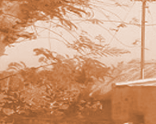
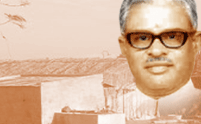

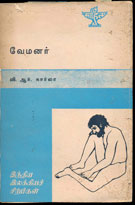 |
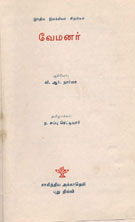 |
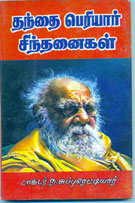 |
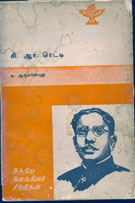 |
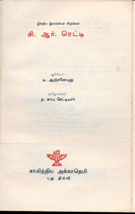 |
Sahitya Akademi
Professor's name finds a place in Sahitya Akademi's 'Encyclopedia of Indian Literature' [Edition 1992, Vol. V Page 4188]. It is reproduced verbatim below:
SUBBU REDDIYAR, N [Tamil; b. 1916] was born at Kottathur in Tiruchirappalli district. Former Professor of Tamil at Sri Venkateswara University, he is well-known for his writings on science, education, Vaishnavism and Tamil research. Irakkettukal [Rockets] won him the Tamil Nadu Government's first prize, Namatu Udal [Human physiology] the second prize and Anukkaru Bautikam [Nuclear Physics] the Madras University's prize. Tamil Payirrum Murai [On teaching Tamil, 3rd ed. 1980], Ariviyal Payirrum Murai [On teaching science] and Kalvi ulaviyal [Educational psychology] are among his works on education. Religion and philosophy of Nalayira divya prabhandham, with special reference to Nammalvar, 1977, Cholanattut tiruppatikal [Temples in Chola Nadu, 1981], Malainattut tiruppatikal [Temples in Kerala, 1977], Tondainattut tiruppatikal [Temples in Thondai Nadu], Pandinattut tiruppatikal [Temples in Pandi Nadu] are some of his works on Vaishnavism. His research works include Muttollayira vilakkam [Commentary on a fragmentary anthology of poems on the ancient Tamil kings, 1965], Paranippolivukal [Transcript of speeches on Kalingattup parani by Jayankondar, 12th c. Tamil poet, 1972], Tiruvenkatamum Tamil ilakkiyamum [lectures delivered at Madras University], Kamban pataitta chiru pattirankal [Characterization in Kamba Ramayanam, 1979] and Kampanil makkal kural [Democratic concepts in the Tamil epic, Kamba Ramayanam]. Presently, he is engaged in translating Tiruvaymoli arayirappati, a commentary on Vaishnavite devotional literature in Tamil.
Unostentatious and unassuming, Subbu Reddiyar carries on his shoulders his scholarship lightly. Author of about fifty books, his magnum opus is his Kavitai anubhavam [Enjoyment of poetry]. His books cover a wide variety and range. Be it on the oldest extant Tamil grammar, Tolkappiyam of pre-Christian era, or a book of verse, or a dissertation on the sacred utterances of Nammalvar, or method of teaching Tamil, Reddiyar is at his best. Steeped in the wisdom of the past and alive to the tremendous pace of scientific advancement, he strives for a meeting point between the two. Basically a man of letters, a Shaivite by appearance and Vaishnavite by erudition, his service in the cause of Tamil is worthy of emulation.
Hø˜ðN»‹ î‹ðN»‹ õ£˜ ‚°
à¬øðF â¡Â‹ àô°. [°øœ : 1015]External Links:
Article on Sahitya Akademi Sahitya Akademi Article on Jnanpith Award Indian Awards Gandhi Peace Prize Literary Societies Sahitya Akademi Publications Article on Indian Literature